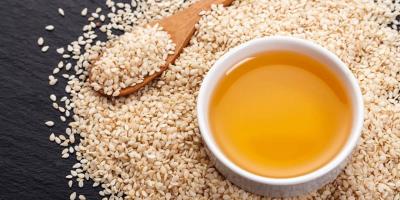A new study has found that sesaminol, a naturally occurring chemical in sesame seeds, could protect neurons and dopamine levels in the body, which are the primary targets for researchers treating Parkinson's disease.
Researchers in Japan report that their early tests are extremely promising, and they are hastening to conduct clinical trials to determine whether this common natural ingredient can halt Parkinson's disease in humans. It is noteworthy that Parkinson's disease is a progressive neurodegenerative disorder that impairs movement and causes stiffness and loss of balance. Common symptoms of this disease include tremors in the hands and speech difficulties, which worsen with age, and currently, there is no cure for this disease.
During laboratory experiments, a team from Osaka City University found that sesaminol combats oxidative stress that harms cells and regulates the production of reactive oxygen species (ROS) and antioxidants. Oxidative stress exerts severe pressure on cells and causes an imbalance between these components. In Parkinson's disease, the illness leads to the degeneration of neurons in the brain that control movement, which die due to oxidative stress.
It is worth mentioning that sesame oil is very popular for its strong aroma and high fat-burning capabilities. Manufacturers produce it by extracting fatty oils from sesame seeds and discarding the empty seeds as waste. However, the Japanese team discovered that levels of sesaminol are abundant in these discarded leftovers.
In laboratory tests, researchers found that sesaminol protects neurons from damage by enhancing the activity of the Nrf2 protein, which responds to oxidative stress and regulates the production of reactive oxygen species within cells. Through a study conducted on mice with Parkinson's disease, the team found that the disease also affects dopamine hormone production. This neurotransmitter, which provides a chemical sensation of satisfaction, plays a key role in feelings of happiness, mood improvement, motor function, and decision-making.
After feeding the mice a diet containing sesaminol for 36 days, the mice showed an increase in dopamine levels and significant improvements in motor performance and intestinal motor function during laboratory tests. The lead researcher of the study, Dr. Yawasa Kojima, stated that she and her team are ready to move their work to the stage of clinical trials on humans. They hope to prove that the first-ever drug for Parkinson's disease could come from an easily accessible natural food source.




